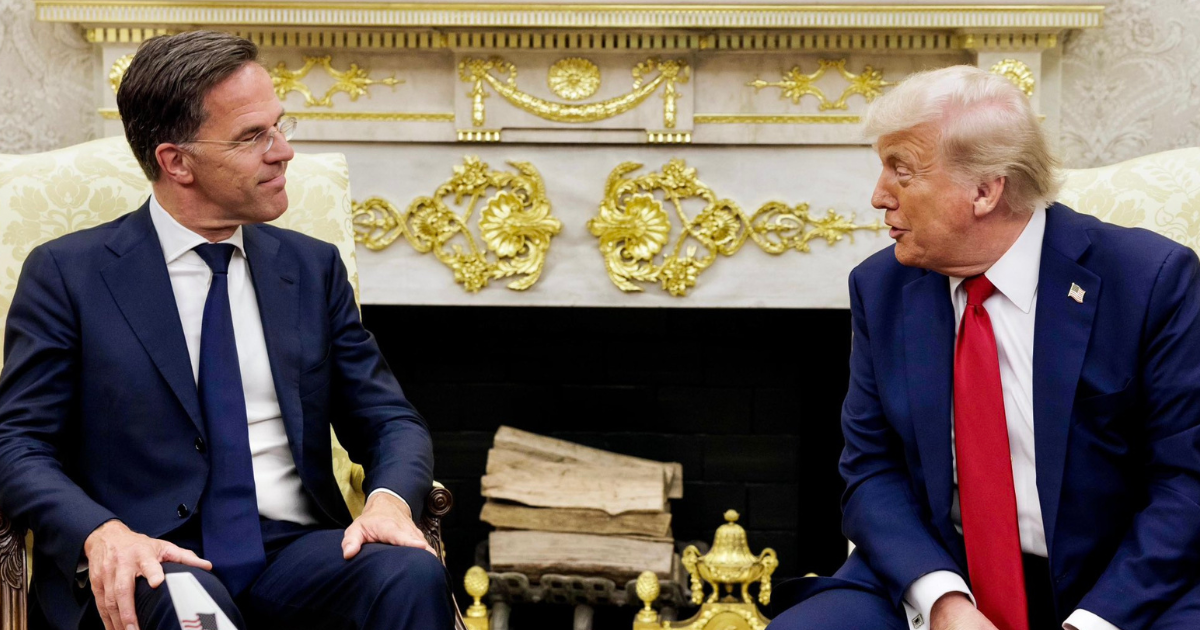EXCLUSIVE: Trump’s Ukraine Plan Blindsides NATO Allies

Scott Ritter, former Marine intelligence officer and UN weapons inspector, asserts that Donald Trump’s NATO strategy is a deception wrapped in braggadocio. Trump claims the U.S. will send arms to Ukraine but make NATO pay the bill. The kicker? “NATO is a freaking mess”, Ritter says, and many NATO countries were blindsided by the announcement. They found out through press releases, not consultations. Germany, already vulnerable with no air defense, is expected to strip itself further to comply with Trump’s plan—without a replenishment schedule.
Germany’s planned air defense handoff to Ukraine leaves it exposed just as it issues threats of unilateral action against Russia. Trump’s message, Ritter says, amounts to: “You strip your defense now, and buy new systems from us—delivery never guaranteed.” Ritter likens this to a deadbeat dad telling the kids to mow the lawn, clean the car, and wait for an allowance that never comes. The Germans, he says, “have no air defense. None. Zero.”
Ritter draws a historical parallel: “We’re going through the Vietnamization phase… clearly we’ve lost.” Like South Vietnam, Ukraine is being strung along with false promises. The real goal isn’t victory—it’s face-saving. According to Ritter, the U.S. can’t admit defeat because it would expose two decades of lies. So instead, it lets Ukraine bleed out while pretending to stand by them.
According to Ritter, the cash pipeline to Kyiv has dried up, leaving only weapons—and even those are conditional. He cites reports (not yet confirmed) that U.S. lawmakers funneled approved aid back into their own pockets via Kyiv kickbacks. With no dollars flowing to local oligarchs, resentment is building within the Zelensky government, and internal rivalries are surfacing. Ritter predicts that without the grift, the support structure collapses.
Far from improvisation, Ritter argues that Russia’s endgame is the integration of Ukraine into a Russia–Belarus “Union State”. Backed by seasoned bureaucrats and former Ukrainian prime ministers, this plan assumes total victory—not a frozen conflict. Meanwhile, BlackRock's quiet exit following Russia’s seizure of a key lithium mine suggests that major Western investors have already accepted this outcome.
Ritter describes chilling precision in Russia’s counter-assassination campaign. Ukrainian “jump-out gangs” tasked with recruiting cannon fodder are being targeted and killed. He claims U.S. intelligence facilitated strikes on Americans like Wyatt Reed, who was shelled after returning to his hotel in Donbas. “This is total war,” Ritter states. And Russia’s response is brutal and asymmetric—no announcements, just corpses.
As Ukraine's defeat nears, Ritter sees a coming wave of internal betrayal. Mid-level officials will flip and provide kompromat to Moscow in hopes of survival. “The good deal goes to the first guy through the door,” he explains, likening it to a criminal case: the first to talk walks. Latecomers will be left without leverage—and face potential execution or exile.
Ritter warns that Germany's growing belligerence isn’t a policy shift—it’s historical rot resurfacing. He highlights how NATO absorbed former Nazi generals after WWII, never fully purging the Wehrmacht, but instead rebranding it as the Bundeswehr. Ritter calls modern Germany the “Fourth Reich,” citing Pistorius’s public remark to troops: “We’re ready to kill Russians again.” He sees this not as isolated rhetoric, but the revival of unfinished ideology.
The U.S. economy, Ritter argues, is no more stable than its foreign policy. With fake valuation, infinite debt expansion, and no industrial base, he likens it to a family living off credit cards. “We don’t make money—we print it,” he says, mocking the illusion of surplus by noting it’s usually just an accounting trick, like skipping bill payments one month to look solvent.
Unlike the U.S., which spins, stalls, and blames, Russia is moving deliberately. Ritter claims that Russia has already mapped out Ukraine’s post-war governance and is advancing toward integration. While the West clings to illusions of resistance, Moscow plants flags in town after town. And as Ritter bluntly puts it, “Russia has a policy. The U.S. doesn’t.”
Scott Ritter is a former United States Marine Corps intelligence officer and weapons inspector known for his role in monitoring Iraqi disarmament. Born in 1961, Ritter served as a major in the USMC, specializing in intelligence and arms control verification. He gained prominence in the 1990s as a United Nations Special Commission (UNSCOM) weapons inspector in Iraq, where he led teams tasked with uncovering and dismantling Saddam Hussein’s weapons of mass destruction programs. Ritter was known for his aggressive inspection style and for publicly challenging both Iraqi obstruction and, later, the U.S. government's claims about Iraq’s continued WMD capabilities.
Ritter holds a Bachelor of Arts degree in history from Franklin and Marshall College. After leaving UNSCOM in 1998, he became a vocal critic of U.S. policy toward Iraq, especially in the lead-up to the 2003 invasion, arguing that Iraq had been effectively disarmed. He has written several books on arms control, intelligence, and U.S. foreign policy, and is known for his outspoken, often controversial commentary on American military interventions and international security issues. His work and public statements have been both praised for their candor and criticized for their provocative tone, contributing to debates about the integrity of intelligence assessments and the use of force in international relations.
Source:
